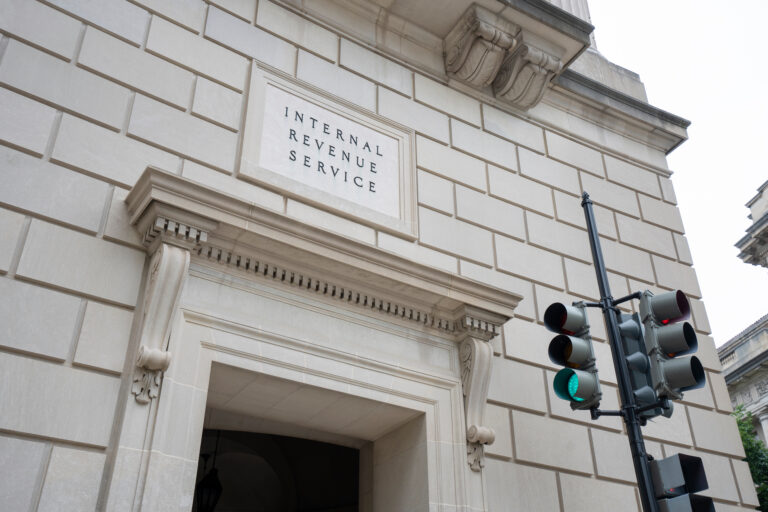August 28, 2025
Brandi M. Samuel
Principal, Tax & International Services Co-Leader
Atlanta, GA

Related Services
< Back to Resource Center
As of Sept. 30, 2025, the Internal Revenue Service (IRS) will officially phase out most paper refund checks, per Executive Order 14247. But this significant shift to modernize and streamline how tax refunds are processed impacts not just domestic taxpayers, but also international individuals and entities.
Why This Matters for International Taxpayers
With the elimination of IRS paper checks, the default electronic method will be direct deposit to a U.S. bank or U.S-affiliated account in the taxpayer’s name. Whilst some non-resident aliens maintain access to U.S. banking capabilities (though this is increasingly uncommon due to Patriot Act restrictions) when it comes to repatriating funds overseas, many U.S. banks require foreign nationals to be physically present in the U.S. to initiate large transfers. Along with the associated costs, individuals also must factor in the currency exchange risk associated with not having immediate access to those funds.
But what about international taxpayers who do not have U.S. banking relationships? Since the IRS will not deposit refunds into foreign bank accounts or issue international wire transfers, or no longer issue paper checks as of Sept. 30, 2025, these taxpayers face real challenges with accessing tax refunds unless they find alternative solutions.
Impact to FIRPTA Withholding
This predicament is especially true of foreign individuals or entities selling U.S. real estate, who have historically faced complex tax withholding and refund processes. Under the Foreign Investment in Real Property Tax Act (FIRPTA), buyers generally must withhold 15 percent of the gross sale price when purchasing from a foreign seller as a prepayment of potential tax liability. Once the actual tax is calculated, the seller can apply for a refund of any excess FIRPTA withholding. Until now, the IRS has mailed these refund checks overseas, however recipients face lengthy delays in receiving them and the almost impossible task of finding a foreign bank willing to accept checks drawn on U.S. banks. The federal mandate looks set to halt this altogether.
Learn more about FIRPTA requirements in our article, Five Considerations if FIRPTA Applies to Your Real Estate Transaction.
How Virtual Bank Accounts Can Be a Game-Changer
To address these challenges, virtual bank accounts have emerged as a vital solution for foreign property sellers, expats and global investors who are due to receive refunds from the IRS. Companies specializing in international payments and foreign exchange have developed platforms – supported by major banking institutions – that allow foreign nationals to open U.S.-backed virtual accounts, thus solving critical issues with accessing U.S. tax refunds and then the additional issue related to the cost of converting U.S. dollars (USD) to the functional currency of the jurisdiction of the taxpayer.
One such provider is Currencies Direct, a leading international payments company headquartered in London that specializes in cost-effective and secure foreign currency exchange, as well as products specific to the global real estate space. We chatted with Rebecca Mowat, Senior Partnerships Manager, about how companies like Currencies Direct are helping clients work around the U.S. federal mandate by offering several unique advantages in their services and products:
- Receive IRS Refunds: Through its banking partnerships with the likes of JP Morgan, virtual USD accounts can be set up in the name of a foreign individual, company, trust or estate, allowing for the swift and compliant receipt of refunds via direct deposit. Checks issued prior to the mandate coming into effect can also be safely deposited into these accounts.
- Global Currency Conversion: USD funds can be immediately accessed remotely, with swift repatriation to over 120 countries, and conversion to the foreign recipients’ local currency at market-leading exchange rates.
- Concierge Service: Foreign taxpayers have access to dedicated Account Managers / FX Specialists to advise on hedging strategies (e.g., forward contracts, limit orders) enabling clients to mitigate currency risk and further protect their wealth.
- Fast Setup: In most cases, personal accounts can be established in less than 48 hours with proof of ID and address.
These accounts have proven to be a particularly valuable solution for high-net-worth individuals, estates and trusts, which often have complex structures and significant, globally dispersed assets. For example, consider a foreign owner of U.S. real property where the sale is subject to FIRPTA. The foreign owner may run into issues with receiving sale proceeds if the buyer (or closing attorney) is unable to remit funds to a foreign bank; then when the foreign seller files their final U.S. tax return, they would need an approved bank account to deposit any potential tax refunds. Or consider a foreign executor of a U.S. estate required to travel internationally to withdraw funds upon the passing of the estate owner. A virtual bank account would allow remote access to the funds, saving both time and travel expenses. It is important to note that while current companies like Currencies Direct offer solutions to receiving tax refunds and sale proceeds, foreign taxpayers still face issues with making U.S. tax payments without a U.S. bank account. International taxpayers do have the ability to make international wire transfers from certain foreign banks for now, but this is also expected to phase out under the electronic funds mandate.
What Taxpayers Should Do Now
With the Sept. 30, 2025, deadline approaching, international taxpayers should first consult with their tax advisor to determine a strategy that minimizes their tax burden while maintaining compliance with the mandate. Part of that strategy could also include the establishment of a U.S.-backed virtual bank account as early as possible to prepare for direct deposit payments or establishing U.S. bank accounts that will allow them to make tax payments, if necessary. Taxpayers should also work with their U.S. tax advisor to make sure they are properly withholding for any current or planned FIRPTA-related transactions.
For questions or more information about how the mandate impacts your unique tax situation, reach out to Brandi Samuel at Windham Brannon’s International Tax Practice as well as Rebecca Mowat at Currencies Direct to explore your options and safeguard your financial interests.


